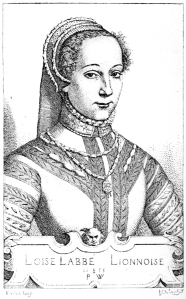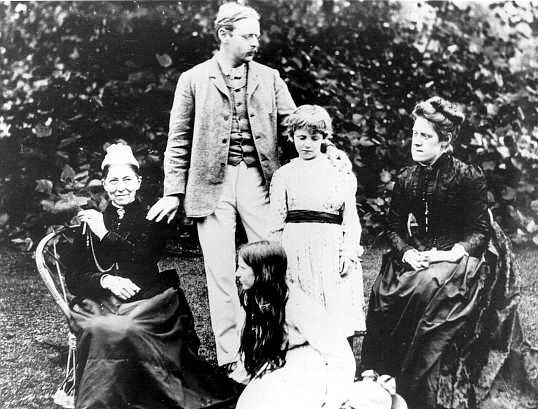
Karin Moe, 39 Whirlwinds: The Immeasurable Wanderings of Louise Labé the Younger & Other Specula (39 fyk: Louise Labé den yngres ustyrtelige vandringar & andre spekulum),
This is a novel, a hybrid, a text collage, a poem, which disappeared nearly immediately when it was published. Øystein Rottem, who wrote a small paragraph about it in his Norwegian post-war literary history (1998), stated that it was “a frolic”, but that it appeared to be “mannered”, that it was affected by its “nebulosity, its many digressions and an inventiveness which was on the verge of strangling itself”. And, in fact, the book is as immeasurable as its title suggests: a female first-person narrator is speaking; but about what or to whom, is uncertain. Pictures, photocopies, still-lifes, illustrate the 39 paragraphs named as fyk, “whirlwinds”. The fyk is a Norwegian word for an exuberant person, and the verb (fyke) describes a breathtaking velocity. These texts have taken a fast lane: Karin Moe reinvents the figure of Louise Labé, a French poet, and places her in Norway; but she isn’t influenced by the Petrarchan School of poetry, as it is the case with her historical archetype, but by feminist theory, surrealism and linguistic experimentalism. The result is a text which surpasses its own borders.
Louise Labé lived approximately between 1524 and 1566. She was influenced not only by Francesco Petrarca’s sonnets, but also by Ovid’s Metamorphoses and by Spanish poetry. Labé, who married Ennemond Perrin, a rich cord-maker, was a member of a group called École Lyonnaise and wrote sonnets which later became known for their extreme formal skilfulness. The other poets of this school, e. g. Maurice Scève and Olivier de Magny, are forgotten; Louise is the only one of them whose celebrity lasts until today. Her texts are often featured in French anthologies and seem to be paradigms of accomplished love poetry.
However, it is rumoured that Louise Labé didn’t exist at all. Her sonnets and odes are regarded as a collective work of male poets who intended to glorify the female genius they had made up of their own accord – thus, they had wanted to praise their own would-be ingeniousness. Therefore, Louise Labé ‘reveals’ ‘herself’ as a fiction and as a projection screen for male poets’ fantasies. Ironically, poets like Scève or de Magny seem to have assured their personal legacy by erasing their own insignificant names from literary history. Although this thesis has been debated, as for example by comparing Labé’s laconic and eloquent style to Scève’s obfuscations and de Magny’s platitudes, it is still appealing to those who intend to criticize the constant marginalization of female authors in literary history. However, 39 Whirlwinds establishes Labé’s figure as a living paradigm of ‘female’ writing. Born into a postmodern society still dominated by men, Labé the Younger has to find her own way – and, more important, her own language. She must disenthrall herself from the threads male authors have wrapped her in. The text she writes does not rely on the artificial structure of a plot; it is a “whirlwind” which raises a storm and comes to a sudden halt. Thus, the 39 fragments or fractures do not form a whole. They are a hole, an abyss, and absorb everything. Louise Labé the Younger, as she is depicted in Moe’s text(s), doesn’t use the conventional love images of her French predecessor – for her, love has nothing to do with a sudden flash of ice and fire, and cannot be described as the expectable amalgamation of contrasts and oxymora – but she speaks Nynorsk, a language which is based on old Norwegian dialects and nearly exclusively used in written texts; furthermore, she introduces many colloquial forms into her speech (“kje” instead of “ikkje”, “not”) or she can employ Bokmål forms such as “kjærlighet” (in place of “kjærleik”, “love”). Her idiolect is characterized by violent digressions, aggressive vulgarisms, and erratic punctuation; thus, Louise is able to expectorate a whole paragraph of invectives without separating her sentences with the aid of commas, semicolons, or full stops. In a passage which is full of gruesome humour, Louise meets a man who has been bleeding from his breast for three days in a row; she asks him if his blood coagulates. It doesn’t. She tastes it and says: “You are menstruating.” She realizes that the discourse in the room “coagulates” immediately. “Comprehensions by way of language can take a few generations”, she notes. She subverts the roles: Firstly, she acts as the man who constantly denies the value of female experiences; secondly, she adapts his toxic masculinity (which is based on sheer ignorance and a striking lack of empathy) and commands him to have sex with her – although he is bleeding. Of all things, the man Louise has encountered is a sociologist, a researcher whose insights are based on empirical examinations – and she confronts him with facts which might seem mind-boggling and offensive to him: “No litmus paper in urinals, no dead rats dissected after one thousand electric shocks. It happens to you! Feel it! It’s fantastic. I’ve made an important observation: Possibly, the sex drive is reduced during male menstruation.” The sociologist becomes furious and accuses Louise of having caused his pain; but she answers that his reactions are an indication of his defective adaptability to extreme situations.
Language is afflicted with its own coagulation.
Louise’s mission does not consist of repeating Petrarca’s desiccated paroles of love to an ideal, Platonic mistress; it consists in liquefying a speech which has suffered from its own meagreness for a very long time. The time has come to swap the roles and change every misconception of what it means to write as a woman. Hélène Cixous’ essay The Laugh Of Medusa, which might have influenced Karin Moe in a considerable way, is centred around the following plea: “And why don’t you write? Write! Writing is for you, you are for you; your body is yours, take it.” Thus, Louise searches for a way to reclaim the female body she has forgotten; after having found it, she tries to reinsert it into history again. But history has been deformed by a Reason which always favoured a male point of view. Louise must invent another form of rationality: a playful, swirling form of writing which is suitable for her own experiences in a literature dominated by men. The 19th century was marked by writers like Ibsen who wanted to engage in societal debates; and Georg Brandes, the Danish critic who coined the slogan of the Modern Breakthrough, called one of his books Det Moderne Gennembruds Mænd – he didn’t bother to be on the lookout for female writers, he referred exclusively to male authors. A perspective which has proved to be ignorant: recent studies have highlighted the importance of female voices, and anthologies like Nordisk Kvinnolitteraturhistoria provide informative insights into texts which have been neglected and ignored. But this awareness has increased gradually. The four most influential Norwegian writers – De Fire Store – are all men: Henrik Ibsen, Jonas Lie, Alexander Kielland, and Bjørnstjerne Bjørnson.
The latter enters Labé’s text for a short and embarrassing performance. Having arrived in the hypermodern Oslo of 1983, Bjørnson is scandalized at finding Synnøve Solbakken, the female protagonist who contributed her name to his homonymous novel, has escaped her narrow textual prison and become the director of Gyldendal, the most important Norwegian publisher. Louise is amused about what happens next: “In P2’s live broadcast, Norwegians can hear a sepulchral voice in heavy need of logopaedic assistance railing against Synnøve Solbakken who has become the director of Gyldendal Norsk Forlag: aren’t there any male protagonists? A Happy Boy has been overlooked! Aren’t there any male authors, wrinkled, weather-beaten? No male publishers? No male editors? Not a single male typesetter who could be kept busy with metrics? Not a single vigorous offer? Not a single stallion?” Bjørnson’s times, they are a-changin’; the Venerated Skald, who wrote the lyrics for Norway’s national anthem, proves to be a braggadocio who needs to be restrained. The often repeated legend states that Henrik Ibsen, the Admired Dramatist, never came to terms with his opprobrium: his father had become insolvent; therefore, the family had to move to a smaller house where Henrik lived for eight years. But a legend is a legend is a legend; in fact, the Ibsen family could afford housemaids and a commodious kitchen. Later, the playwright decorated the story about his trauma; actually, he disdained countrymen, and was anxious about distancing himself from them in every possible way. Synnøve leaves Gyldendal; and this is how Louise comments the twist: “As the daughter of a bankrupt merchant, I understand that Henrik Ibsen didn’t throw his hat in the ring.” She seems to know that Ibsen’s heroic biography isn’t as heroic as the dramatist tended to present himself; it is the tale of a peacock who succeeded in leaving an altruistic mark which in fact was pseudo-altruistic. Thus, Louise’s opinion about the most important Norwegian writers is affected by scepticism; she takes nothing for granted.
Louise wants to establish a border between herself and those men who still believe that they alone are allowed to define what literature is. Love is connected to masculinity; make-up, fashion, nursing, and many other things, are connected to love. A small detail belongs to a whole: thus, everything is, in some way, intertwined with masculinity. It is Louise’s mission to cut these threads. She wants to create another language: a language which is more flexible, which doesn’t rely on metonymical similitudes, but on metaphorical volatilities. Thus, she intends to prevent men from invading the room which exclusively belongs to herself; with this conception of love, Louise wants to avoid “some old men’s colossal, territorial love to some other men” getting in the way of her own language. Her love isn’t territorial; it is based on coincidental connections, ephemeral combinations, and spontaneity; in short, it is a “whirlwind” which is capable of tearing everything apart. It is a love based on language’s erotic capacities: a love which accepts the unknown and the unconscious without even trying to reject it.
39 Whirlwinds begins with a quote by Arthur Rimbaud. In one of his famous letters, the French poet imagines that women – after the end of their “infinite thraldom” – will be able to “find the unknown”; they will discover “strange, fathomless, abhorrent, delicate things”, and they will be “understood”. By whom? By men? Probably. Rimbaud’s quote can be read as a programmatic comment on Louise Labé as she is depicted in Moe’s hybrid text. With the aid of metaphorical volatilities, she learns how to break free from the tight and narrow shapes men’s aggressive and toxic language has detained her in. But she still needs to gain access to her new self: a new mirror to reflect herself in. This new mirror – or, as it is subtly called in the book’s title, the speculum – is the written text with its potential to combine many distant impressions into a fragmentary whole. Thus, the first “photocopy” shows a mirror; beneath are Rimbaud’s quote and a French-Norwegian Labé palimpsest, a translation, obviously conducted by Moe, where “amoureux” becomes “manful” and “braise” “munchkin”. A poem which differs radically from its source text: it doesn’t show the (old) woman who is willing to abandon herself to a man; instead, it shows the (new) woman as Arthur Rimbaud depicts her, a woman who isn’t afraid to transcribe tradition, to unleash unconscious drives, to scrape together a language which isn’t affected by metonymy’s “stickiness”, but by “metaphorical volatilities.”
- Matthias Friedrichhttps://theuntranslated.wordpress.com/2018/08/28/guest-post-matthias-friedrich-on-karin-moes-39-whirlwinds-the-immeasurable-wanderings-of-louise-labe-the-younger-other-specula-39-fyk-louise-labe-den-yngres-ustyrtelige-vandringar-an/
Karin Moe (born 3 December 1945) is a Norwegian writer and literary critic.
She made her literary debut in 1980 with the text collection Kjønnskrift. Other collections are 39 Fyk from 1983, and Sjanger from 1986. She published the experimental novels Blove 1. bok and Blove 2. bok in 1990 and 1993 respectively. - wikipedia





